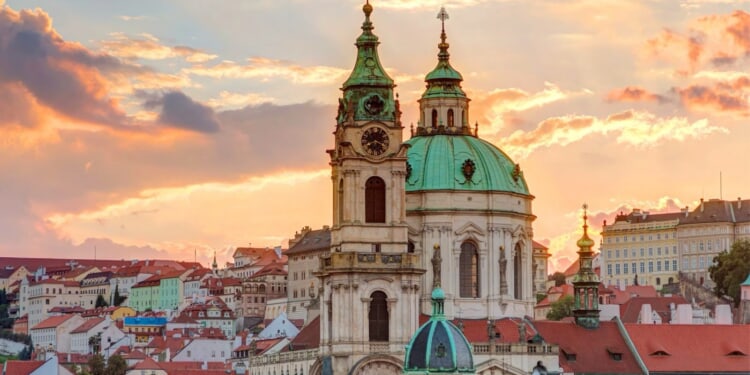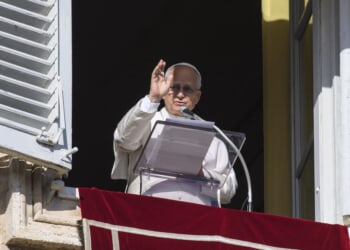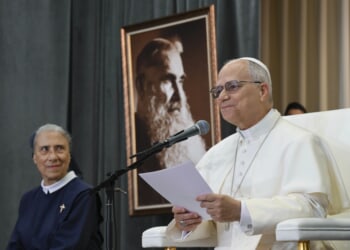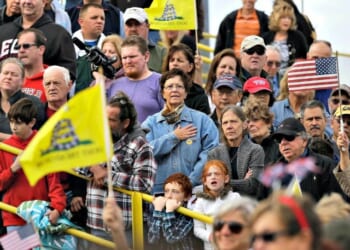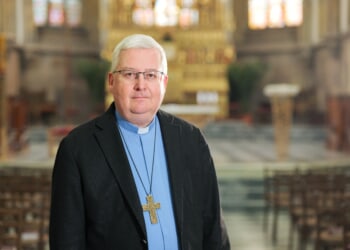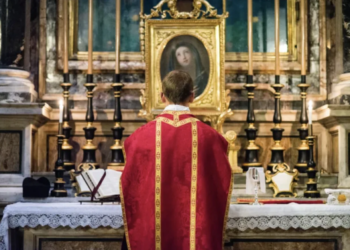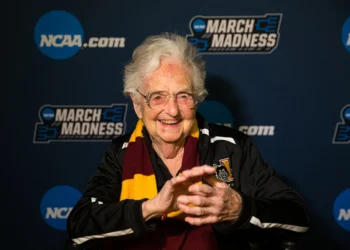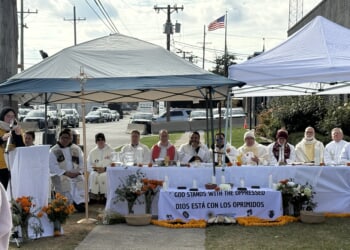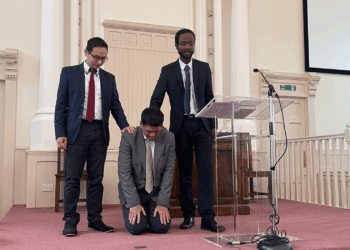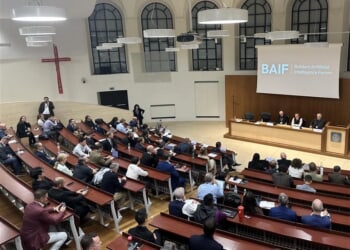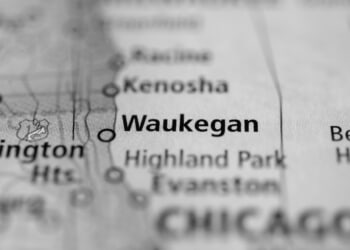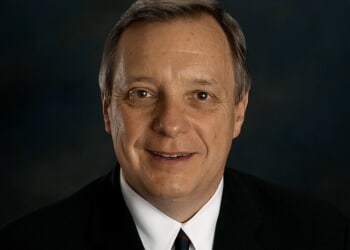ACI Prensa Staff, Nov 12, 2025 /
12:15 pm
The Czech Republic, known for its historical heritage, fairytale castles, and medieval architecture, is considered the most atheist country in Europe.
Evangelization in this land — which still bears the scars of a past marked by communism and division — is a constant challenge but not an impossible goal. Czech missionaries say they perceive “miraculous touches of God’s presence” in a society increasingly thirsting for love and truth.
Approximately 80% of the Czech Republic’s more than 10.5 million inhabitants claim to have no religious affiliation. Although about a third of the population say they believe in God — in many cases without being linked to a specific denomination — only 9.4% identify as Catholic.
Nearly a quarter of Czechs declare themselves atheist, according to the 2017 Pew Survey on European Values, making the country one of the most secularized on the continent. Comparing census results since 1991 reveals a clear decline in church membership and an increase in personal belief in God without institutional affiliation.
‘Miraculous touches of God’s presence’
Brother Šimon Růžička, OFM, who is in charge of the Franciscan urban missions in the country, explained to ACI Prensa, CNA’s Spanish-language news partner, that the missionaries experience “miraculous touches of God’s presence,” reflected in a “deep thirst for love and, therefore, for God.”
“We also perceive how God touches people’s hearts, sometimes even long before they meet one of our missionaries,” he added.
For Father Daniel Vícha, vicar for pastoral care of the Diocese of Ostrava-Opava, evangelizing those who “know nothing about the faith” is not “so difficult” since, he noted, matters of faith “are usually a surprise” to them.
“The majority of the population declares themselves atheist, but at the same time, 70% say they believe in ‘something,’ and that is precisely where we must begin,” he said.
The priest told ACI Prensa that he encounters greater difficulties evangelizing those who have some notion of Christianity, for example, “because of history classes or reports about abuse” and that they “are usually more unreceptive.”
Růžička agreed with this statement and emphasized that it is more difficult “to be a prophet in your own home” and in the daily mission, in parishes, and among friends or family.
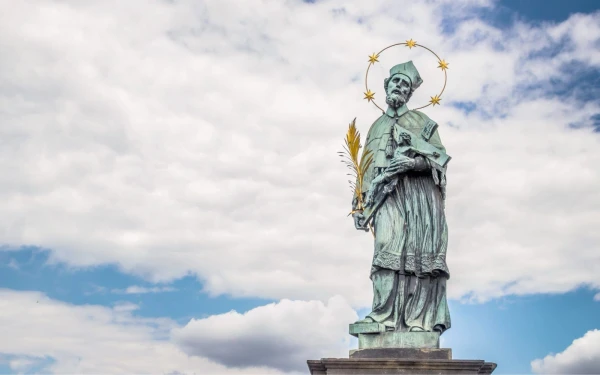
Atheism, a consequence of deep historical roots
The low number of Catholics in the country is due to several reasons. At the beginning of the 15th century, Protestant reformer Jan Hus — and the subsequent repression of his followers, the Hussites, by the Austro-Hungarian Empire — the Catholic Church has been associated in the collective memory with foreign power and imposition.
Furthermore, the aftermath of 40 years of communist persecution following World War II left “deep wounds in the local Church” that have not yet fully healed, according to the pontifical foundation Aid to the Church in Need (ACN).
After the fall of communism, there was a brief religious resurgence, though more as a political reaction than a genuine conversion. Since then, religious affiliation has continued to decline, and faith in the Czech Republic today is characterized by individual spirituality without strong institutional ties.
(Story continues below)
Subscribe to our daily newsletter
Vícha explained that communism has played a significant role but “simply completed something” that was already deeply ingrained in Czech society.
“Four centuries of the nation being part of the Catholic Austrian monarchy fostered a negative predisposition toward faith,” he said.
Because of its strong sense of national identity, the priest explained, the Czech nation distanced itself from Catholicism, which was represented by the Austrian government.
“With such a varied history, it’s not surprising that Catholics make up less than 10% of the population. However, I see it as a miracle that the Church of Christ is a truly living organism, independent of worldly powers and human errors and failures, often including our own,” Růžička added.
The faith of the Czech people
Vicha emphasized that Czechs “are skeptical by nature” and that “before accepting something as their own, they need to reflect for themselves.”
This, according to the priest, is due to their location in central Europe, where “various schools of thought have alternated and the nation has had to think for itself about what is truly right. If a Czech person accepts a faith, it very often needs to be rationally justified,” he said.
The vicar for pastoral care underscored that believers “are no longer burdened by fear, as was the case during the communist era. If their faith is authentic, they are not ashamed of it and can talk about it with their peers.”
Conversely, if it is merely “a dead tradition” — as often happens in more religious areas — they prefer to abandon their faith “because it offers them nothing. They are very sensitive to any form of clericalism, superiority, or dogmatism,” Vícha said.
Růžička pointed out that young people receive the faith from their elders “with openness and new creativity,” and although they are sometimes “immersed in a sea of confusion and uncertainty,” he assured that “they are not satisfied with mere words, but seek and yearn for a true relationship with God.”
Challenges in the face of atheism
Vícha noted that although the Catholic Church is a minority in the country, it represents the strongest community in the religious sphere. “Due to historical experience, people do not seek faith within Christianity. For this reason, it is necessary for the Church to strive, above all, to be credible.”
For his part, Růžička identified the Church’s image in the world, which sometimes shows “a divided Church, worn down by material concerns,” as one of the main challenges.
Consequently, he said that a “living and spiritual Church” is necessary, one that loves the sinner but does not tolerate sin. A Church that does not judge but encourages and shows the way through its life and works. “That Church exists in our country, and I eagerly hope that it will grow and bear fruit.”
Increase in baptisms
Some 300,000 people regularly attend Sunday Mass, which is equivalent to a third of those who identify as Catholic. Last year, nearly 15,000 baptisms were administered (more than 12% of births), and adult baptisms reached 7%, the highest percentage since 1993.
Vícha confirmed that the Church is witnessing “an increase in the number of adults requesting baptism. But more and more believers are also dying due to old age. Therefore, the total number continues to decline, even though the number of catechumens is growing.”
Růžička noted with hope that in recent years “the number of people for whom this world without God has lost its meaning and who yearn for God has indeed increased. It depends on us if we know how to respond to that desire.”
For this reason, he “sincerely believes that in the future it will not be a matter of quantity but of quality.”
This story was first published by ACI Prensa, CNA’s Spanish-language news partner. It has been translated and adapted by CNA.

